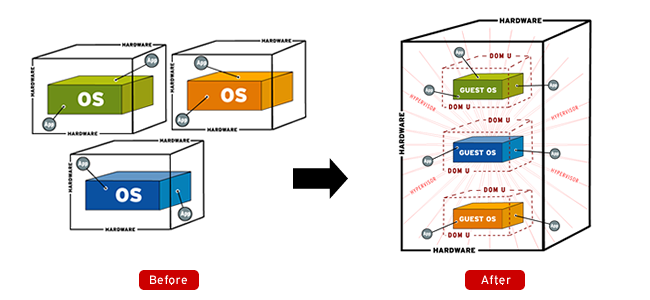The biggest open source threat to Microsoft

It's not the Linux desktop. It's not the cloud. It's not applications like Firefox.
It's virtualization. (Picture from Red Hat.)
I'm not talking about a particular virtualization scheme here, like Xen, OpenVZ, or Virtualbox.
It's virtualization itself, the fact of it. Virtualization means you can run Windows applications on a Linux desktop. Virtualization is the secret sauce behind the cloud.
Virtualization makes your underlying operating environment irrelevant. It has to make its case based solely on performance.
Windows can't win that fight. Linux is more modular, it has a longer history, it's more efficient with system resources. That's why it's so strong in the server market.
Sure, in theory you could do a complete rewrite of Windows, using virtualization to achieve the backward-compatibility which has been Microsoft's alpha-and-omega, and which has become the anchor holding it down.
If it's any good we'll write a virtualizer for it, or emulate it.
What virtualization does, simply, is knock the pins out of Microsoft's business case, the idea that the operating system is beneath everything and he who controls the foundation controls the world.
Maybe in video game players.
Before leaving you for weekend cogitations, of course, I should also ask what might replace the operating system as the foundation and control point for computing down the road.
I have an answer there, and it's not going to please open source advocates. It doesn't please me one bit.
